Carbohydrates Calculator
Super simple & mobile-friendly. Choose your method, enter one or two numbers, and get your daily carbs (g) and an even per-meal split.
Find your ideal daily carb intake for weight loss, muscle gain, or maintenance—personalized by your stats, activity level, and goals.
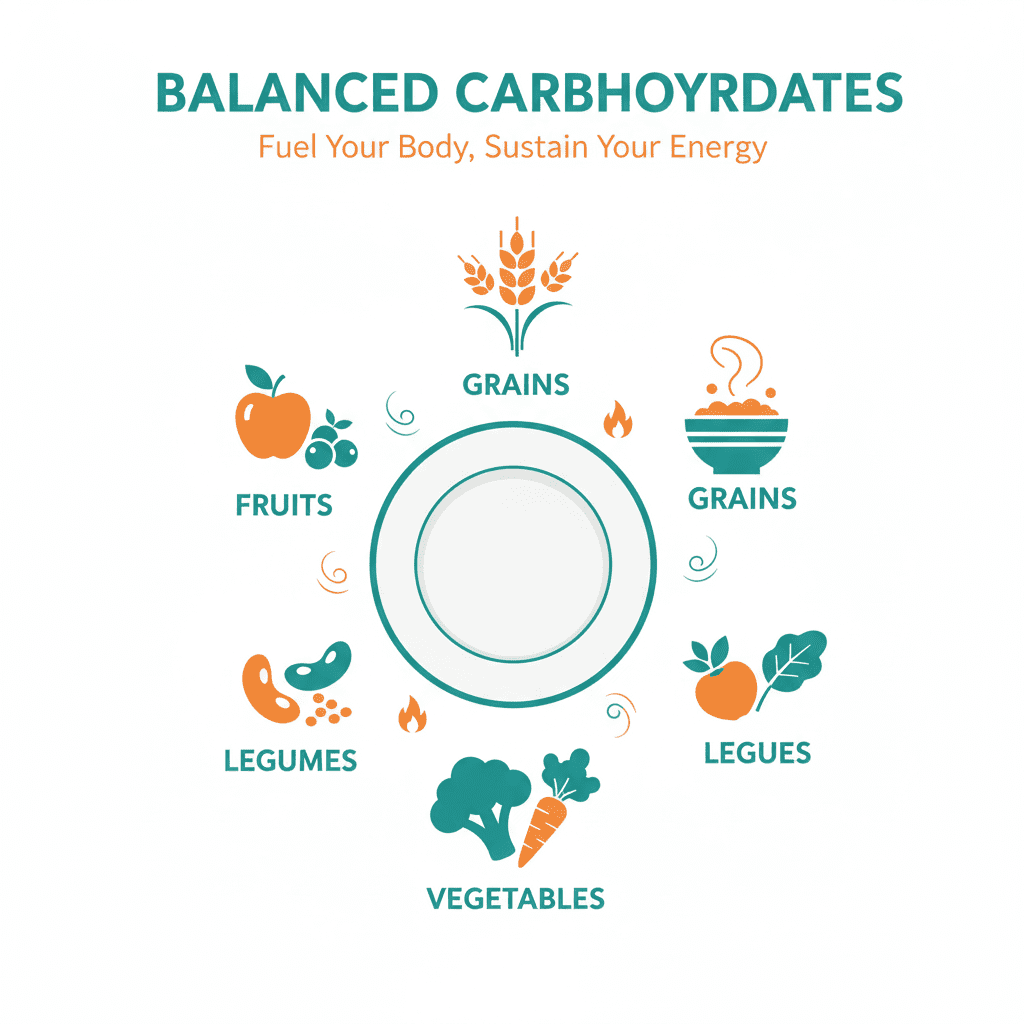
Introduction: Carbohydrates Matter for Everyone
Carbohydrates fuel your brain, muscles, and vital organs. Too few can mean fatigue and poor focus; too many can push weight gain. The right amount depends on your age, sex, activity, and goals.
The NutriFitCalc Carbohydrate Calculator gives an evidence-based daily target—fast. Whether you want to lose fat, build muscle, or maintain, it’s a personalized energy plan, not guesswork.
What Is a Carbohydrate Calculator?
This digital nutrition tool estimates the grams of carbs you need per day. It factors in your BMR (Basal Metabolic Rate), TDEE (Total Daily Energy Expenditure), and your selected goal (maintenance, fat loss, or muscle gain).
Unlike one-number tools, NutriFitCalc provides total daily carbs, per-meal splits, and percent-of-calories—so you can track by grams or percentages. Pair it with the BMI Calculator and Calories Calculator for a complete plan.
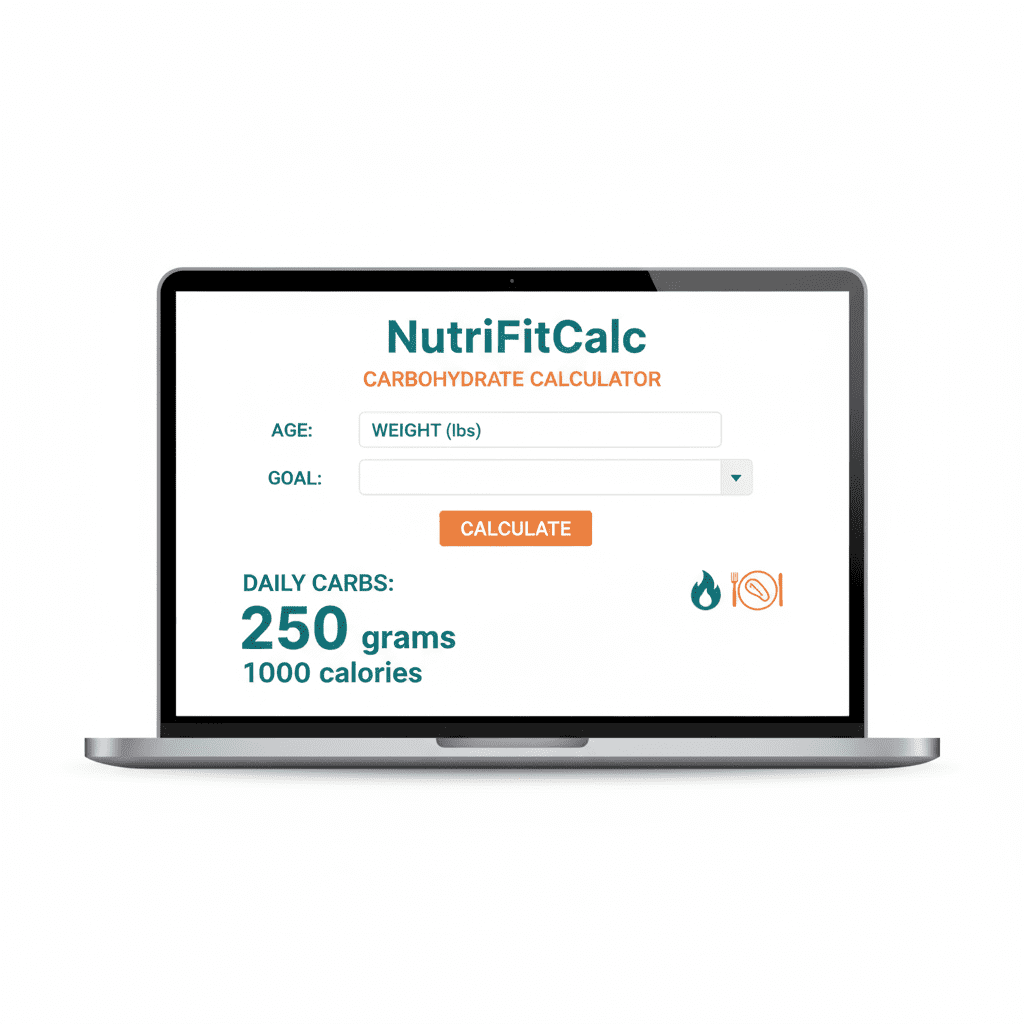
Step-by-Step: Using the NutriFitCalc Carbohydrate Calculator
- Enter your sex, height, weight, and age.
- Select activity level (sedentary to very active).
- Choose your goal (maintenance, weight loss, or muscle gain).
- Pick calculation mode:
- Percentage of total calories
- Grams per kilogram of body weight
- Fixed grams per day
- Enter number of meals to split carbs evenly.
- View results instantly—daily totals, per-meal breakdown, and % of calories.
Tip: After calculating carbs, cross-check macro balance with the BMR Calculator and Protein Calculator.
Carbohydrates: Roles in Your Body
- Primary energy: fastest source of glucose for movement and thinking.
- Glycogen storage: fuels training and aids recovery.
- Brain function: glucose supports focus and mood.
- Digestive health: fiber supports gut balance and regularity.
- Hormonal balance: carbs influence insulin, cortisol, and serotonin.
Quality matters: choose complex carbs (oats, brown rice, legumes, fruit) over refined sweets to avoid spikes and crashes. See Harvard Health for more.
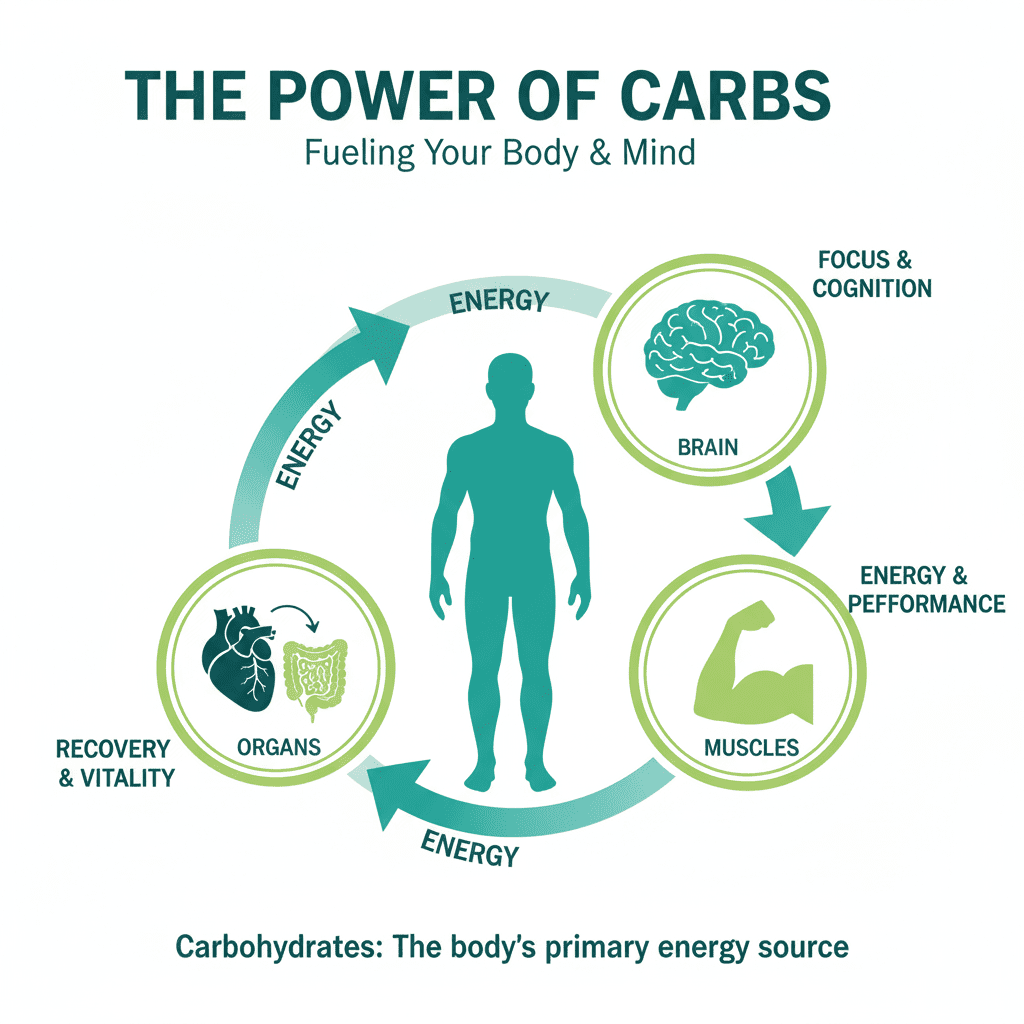
How Many Carbs per Day?
CDC guidance: many adults do well with 45%–65% of calories from carbs. Adjust within that range for activity and goals.
| Activity level | % of calories from carbs | Example on 2,000 kcal |
|---|---|---|
| Sedentary | 40–45% | 200–225 g |
| Moderate activity | 50–55% | 250–275 g |
| High activity | 55–60% | 275–300 g |
| Athlete | 60–65% | 300–325 g |
The calculator adapts carbs downward for fat loss and upward for performance automatically. Validate energy needs with the BMR Calculator and Calories Calculator.
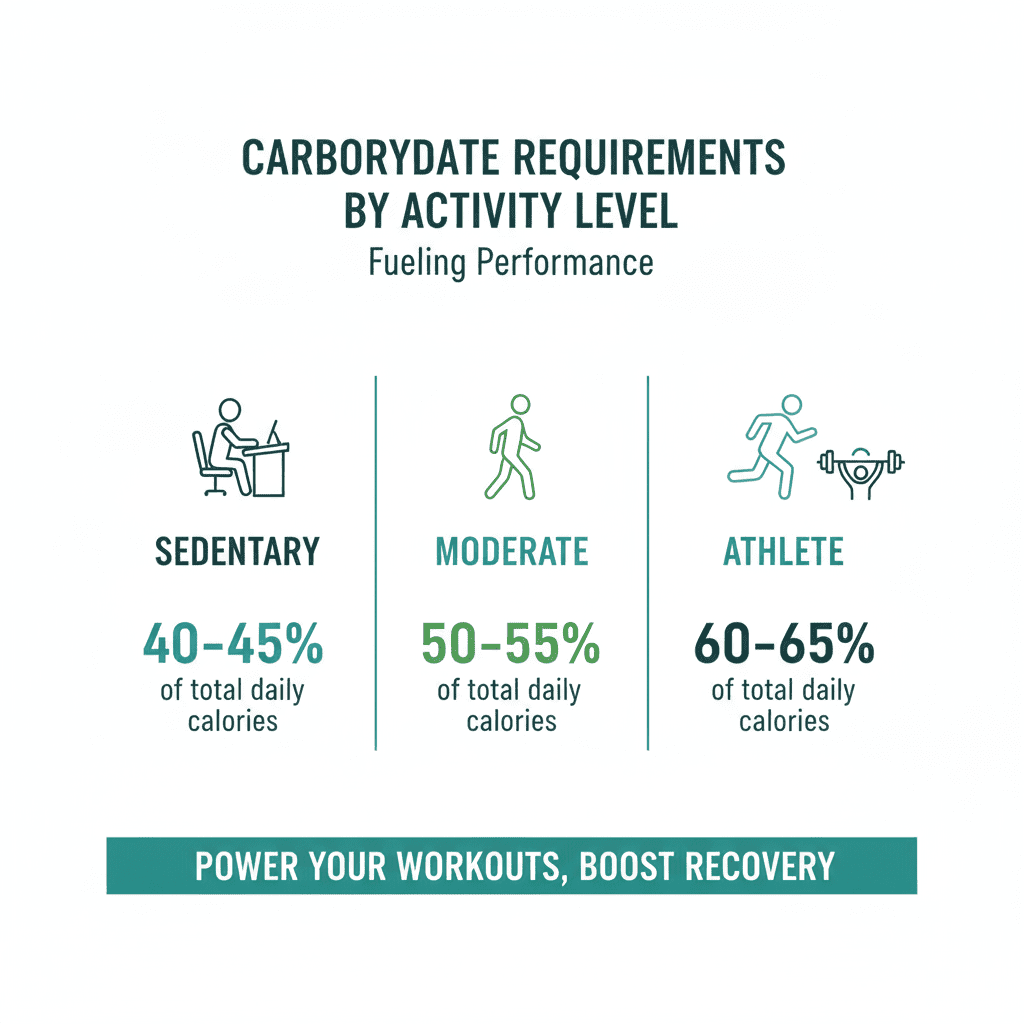
Carbs for Weight Loss & Muscle Gain
Weight loss
Create a modest calorie deficit while prioritizing high-fiber complex carbs (sweet potatoes, whole grains, lentils) for satiety and stable energy. The calculator sets an appropriate carb range without crashing metabolism.
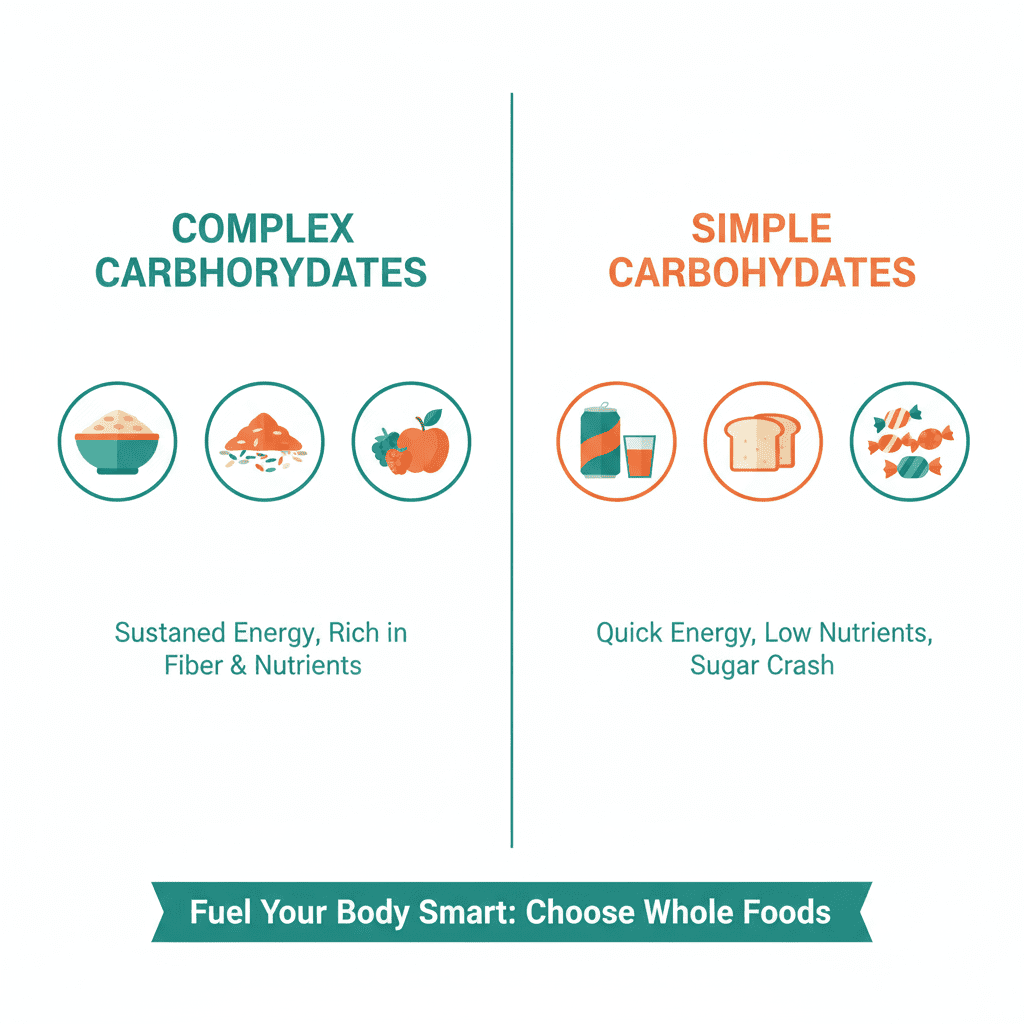
Muscle gain
Glycogen fuels hard training and recovery. Many lifters target 55%–65% carbs on training phases. Use the goal toggle (Lose → Gain Muscle) for an instant macro shift. Pair with the Protein Calculator to balance macros.
Fiber, Net Carbs, and Why They Matter
Net Carbs = Total Carbs − (Fiber + Sugar Alcohols)
Net carbs reflect the portion most impactful on blood sugar—useful for low-carb or carb-cycling approaches. NutriFitCalc includes a net-carb estimator alongside totals.
WHO suggests adults consume about 25–30 g fiber daily for digestive and heart health.
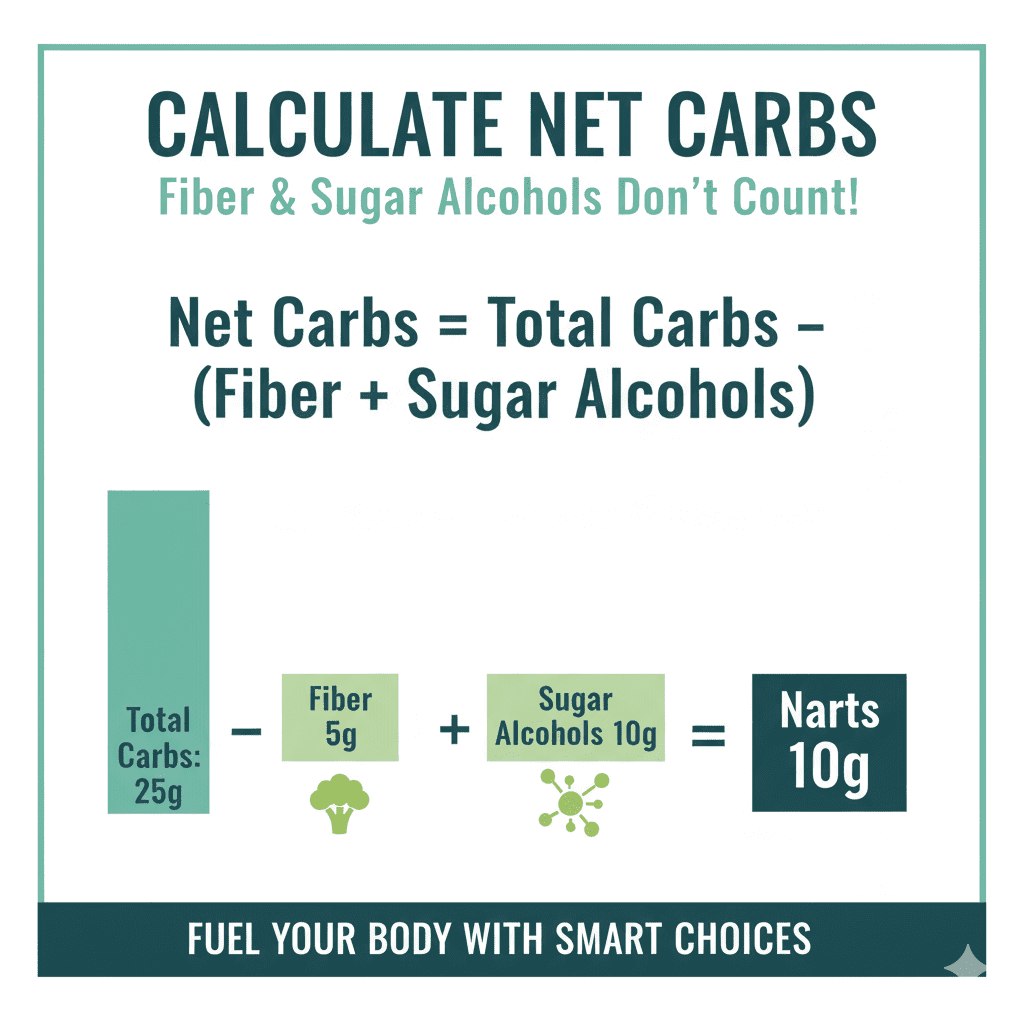
Keto & Low-Carb Insights
- Keto: ~20–50 g carbs/day.
- Low-carb: ~10%–30% of calories (≈50–150 g).
- Balanced: ~40%–55% of calories.
In NutriFitCalc, set your own % or fixed grams to match keto, low-carb, or balanced plans. Favor non-starchy vegetables, seeds, and minimally processed foods. See Harvard Health on low-carb quality.
Tips to Maintain Balanced Carbs
- Prefer whole foods: fruits, vegetables, legumes, and whole grains.
- Distribute carbs evenly across meals (use the per-meal split).
- Hydrate well—carbs store with water.
- Time complex carbs around workouts for performance.
- Balance macros with the Protein and BMR tools.
- Track and adjust every few weeks based on energy, mood, and progress.
Regular tracking improves outcomes. The calculator makes daily application simple.
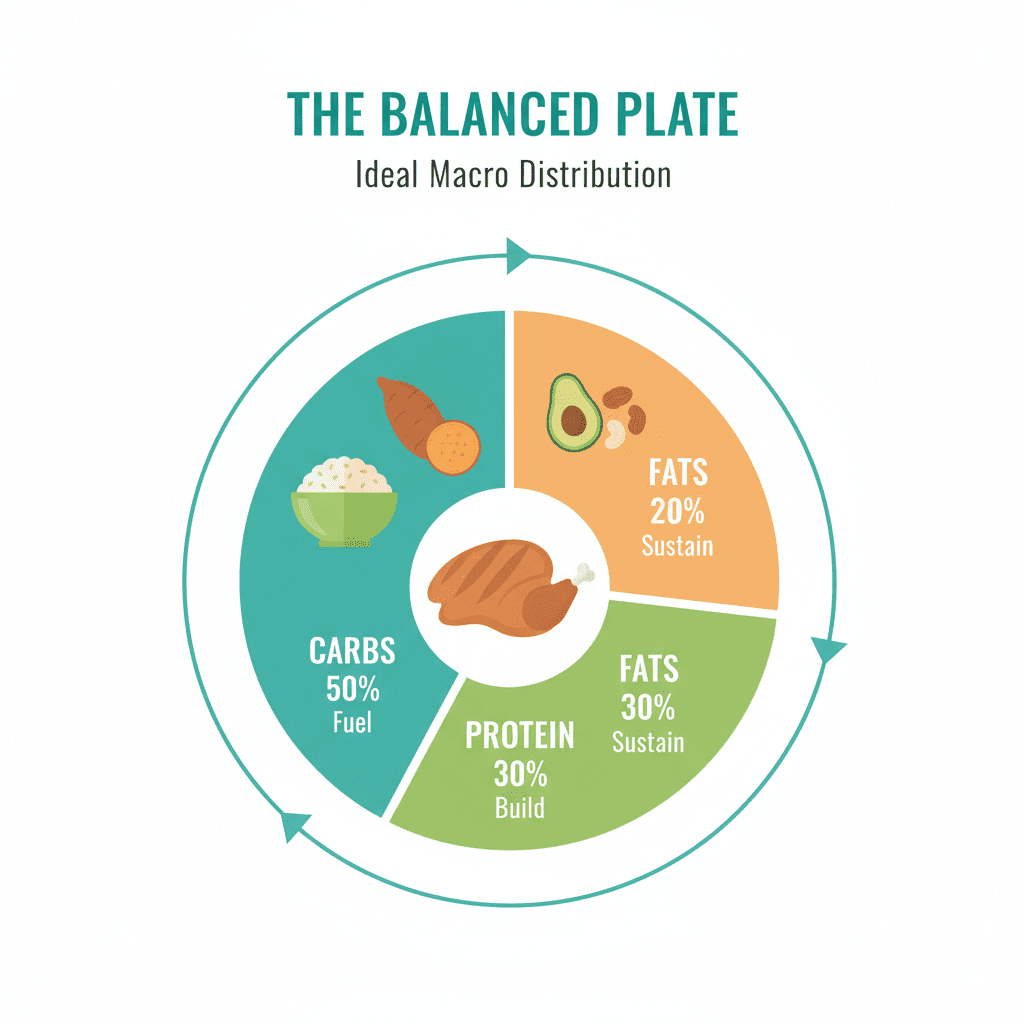
FAQs
How many carbs should I eat to lose weight?
Many plans use about 40%–45% of calories from carbs (≈200–225 g on 2,000 kcal), combined with a modest calorie deficit and higher protein intake.
What are net carbs?
Digestible carbs impacting blood sugar: Net Carbs = Total Carbs − (Fiber + Sugar Alcohols).
Can I use this for keto?
Yes—set a fixed target (e.g., 20–50 g/day) in the calculator to align with ketogenic ranges.
Are carbs bad for weight loss?
No. Quality and quantity matter. Complex, fiber-rich carbs support satiety and steady energy while losing fat.
Is this calculator OK for diabetics?
It can help estimate intake, but always follow personalized medical guidance from your clinician or dietitian.
Why NutriFitCalc’s Carbohydrate Calculator
- Instant carb targets with BMR-based precision.
- Easy goal switching (lose/gain/maintain).
- Supports net-carb and per-meal analysis.
- Mobile-friendly with save/export options.
- Food converter and related calculators integrated.
Explore related tools: BMI Calculator • Calories Calculator • Protein Calculator
Conclusion
NutriFitCalc turns carb planning into a clear, personalized plan. Set precise daily carbs for your goal and keep energy balanced by pairing with the BMR, Protein, and Calories tools.